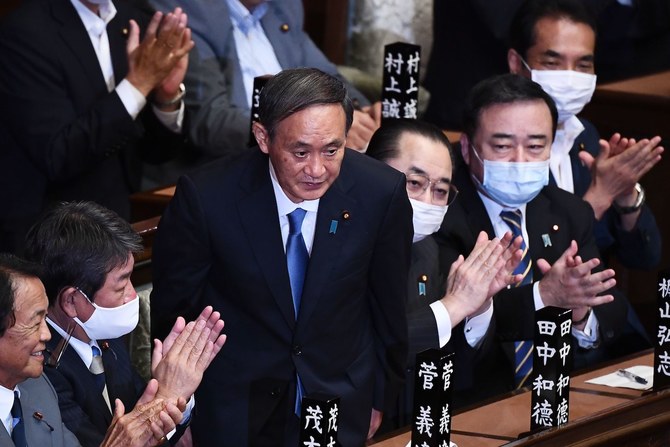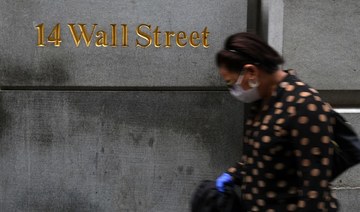The week that was:
COVID-19 cases surpassed 30 million globally this week.
OPEC+, an alliance between OPEC and 10 non-OPEC nations led by Russia, held its Joint Ministerial Monitoring committee (JMMC), which oversees compliance with its historic cuts.
While compliance was good, with 102 percent according to OPEC and 97 percent according to S&P Platts, there has been consistent under-compliance by several members, namely Iraq and Nigeria.
In August the UAE also significantly produced above its quota, citing the hot weather and associated air conditioning and desalination demands as the reason. While extending the time in which laggards can compensate for overproduction until the end of the year, Saudi Energy Minister and JMMC co-chair Prince Abdulaziz bin Salman strongly reprimanded non-compliance.
Markets liked what they heard: WTI jumped by 2.2 percent and Brent by 2.3 percent on the news. The reaction was aided by several tropical storms lining up to hit Gulf of Mexico production and refining facilities. Oil was up 10 percent for the week, the strongest performance since June, which came on the back of the price falling consecutively during the preceding two weeks.

US first-time jobless claims came in at 860,000 for the week ending Sept. 12. They stubbornly hold above 800,000. The persistent new jobless claims and unemployment at 8.4 percent had ramifications on Fed policy.

Yoshihide Suga was elected prime minister in Japan. He had been a long-term ally of his outgoing predecessor Shinzo Abe and is expected to continue with the three vectors of Abenomics: Monetary and fiscal stimulus and structural reform, concentrating more on the latter, as the country’s high debt burden poses limitations on further stimulus. He is expected to initially prioritize reforming the banking and telecommunications sectors.
Focus:
The Fed’s Federal Market Open Committee decided that interest rates would stay at current levels, just about 0 percent for three years, which is extremely long-dated forward guidance. Chairman Jerome Powell said that while the long-term inflation goal remained at 2 percent, he was happy with inflation moderately exceeding 2 percent in the short run in order to achieve the goal over time. The Fed’s pessimistic assessment of the current economic environment and its outlook triggered a sell-off in equity markets.
Bank of England policymakers similarly left rates and monetary policy unchanged. They also presented a more pessimistic economic outlook. Up until now its base case was a smooth Brexit, which may not be possible. However, what sent sterling tumbling on Thursday was that policymakers acknowledged that negative interest rates might be on the cards once the bank had run out of all other policy options. This is particularly difficult, because the UK has a current account deficit and therefore needs capital inflows.
The Bank of Japan also kept its programs constant despite inflation turning negative. This is a sign that, while inflation remains the key metric for the Fed, the Bank of Japan is stepping away from its singular focus on inflation. It is a reflection of the new Japanese prime minister not placing a heavy emphasis on price targets, instead focusing on economic recovery and market stability.

The week also saw a flurry of deal activity, with Monday’s merger and acquisition announcements exceeding $60 billion in the US alone.
Nvidia Corp is buying chipmaker Arm Ltd. from Softbank for $40 billion and Verizon Communications acquires TracFone Wireless for just below $7 billion in a bid to commute the prepaid mobile market to a post-paid model.
Gilead Sciences is buying Immunomedics for $21 billion aiming to expand beyond the HIV treatment business. Abu Dhabi’s sovereign wealth fund, ADDIA, is acquiring a 10 percent stake in Texas-based LNG pioneer Cheniere Energy.
Cloud computing software company Snowflake Inc. raised $3.4 billion in its record-breaking IPO. The shares doubled upon listing reaching a valuation above $70 billion. One interesting aspect was that Warren Buffett’s Berkshire Hathaway had invested roughly $730 million in Snowflake. This represents an about-turn for Buffett who is known for investing in value stocks and cyclicals rather than growth stocks. It is another sign of how COVID-19 upended investment models by bringing more emphasis to technology-enabling models of work and life.
JFrog similarly rose by 47 percent on its IPO on the NASDAQ, achieving a valuation of $5.7 billion.
On the other side of the Pacific, Jack Ma’s Ant Group will list later this year on the Shanghai and Hong Kong exchanges. Ma wants to avoid controversy by not listing in the US.
Similarly, ByteDance rival Kuaishou is considering a listing on the Hong Kong stock exchange as is JD Health.
In Europe the Dublin-based financial software firm Fenergo is considering an IPO as are French cloud computing company OVH Groupe SA and the German used car marketplace Auto1 Group GmbH.
Where we go from here:
ByteDance and Oracle are set to agree to a deal whereby the US software company and Walmart, alongside three US shareholders of ByteDance, would together hold a minority stake in a newly formed TikTok entity to be headquartered in the US with an independent board consisting of US citizens, which will be approved by the US government.
Oracle would gain full access to TikTok’s source code and any updates. ByteDance also proposed a US IPO of the company. The deal still needs the approval of President Donald Trump’s administration. The degree of government stewardship for this transaction is unusual in the context of a liberal, free market economy.
EU Commission President Ursula von der Leyen said a Brexit deal was still possible. The question being what sort of trade agreement could be hammered out with so little time remaining until mid-October, the deadline UK Prime Minister Boris Johnson has imposed.
— Cornelia Meyer is a Ph.D.-level economist with 30 years of experience in investment banking and industry. She is chairperson and CEO of business consultancy Meyer Resources. Twitter: @MeyerResources
















